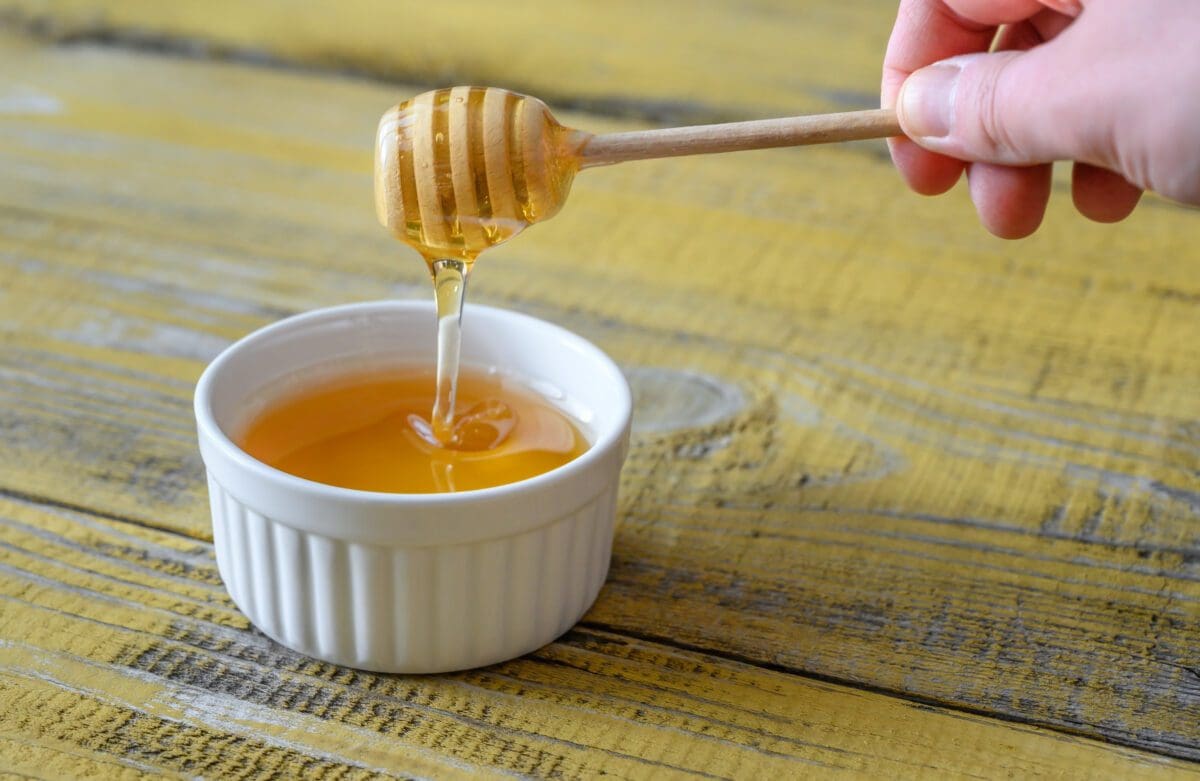Considering a natural way to enhance your sleep quality? Look no further than the jar of golden goodness sitting in your kitchen: Manuka honey.
From stabilizing blood sugar levels to supporting brain function, The Benefits of Manuka Honey Before Bed can go beyond just satisfying your sweet tooth.
In a world where stress levels can sometimes wreak havoc on our sleep habits, the medicinal properties of Manuka honey could be the key to unlocking the ultimate sleep experience.
Stick around to learn more about the effects of Manuka honey before bed.
For many of us, achieving a good night’s sleep can feel like an unattainable goal, especially in today’s high-stress world.
Enter Manuka honey, a sweet solution that might just be the remedy for insufficient sleep you’ve been looking for.
Backed by scientific findings, this golden elixir has shown promise in promoting restful and deep sleep.

Manuka raw honey slowly releases glycogen during sleep.
Glycogen is like the fuel your body needs for essential functions, and its steady release helps reduce the frequency of nighttime awakenings.
This means fewer interruptions and more uninterrupted Zzzs.
A good night’s sleep isn’t just about hours logged; it’s about the quality of those hours.
When consuming Manuka honey before bedtime, it supports the release of melatonin, often referred to as the “wellness hormone.”
Melatonin formation is a key player in tackling poor sleep. It helps you initiate sleep. In addition, it ensures your recovery during sleep.
Raw honey might seem like an odd bedtime snack option, due to its sweetness. Nevertheless, you don’t have to worry about sugar spikes.
That said, Manuka honey differs from regular sugar in how it impacts your body. Consuming a spoonful or even just a teaspoon of the natural sleep aid can cause a gentle increase in insulin levels, triggering the release of tryptophan.
This amino acid eventually transforms into serotonin and melatonin, but it doesn’t stop there! The release of melatonin also helps stabilize blood sugar levels, ensuring a smoother sleep experience.
Ever wake up feeling hungry in the middle of the night? Manuka honey might have the answer! Your brain functions during sleep by tapping into its liver glycogen reserves. It can sometimes leave you feeling hungry and awake.
The amounts of fructose and glucose in Manuka honey offer an easily accessible fuel source, replenishing your liver’s glycogen levels. This replenishment helps keep your energy levels steady throughout the night, curbing those midnight hunger hormone pangs and offering quality sleep.
A spoonful of honey might be what you need to pave the way to a restful quality of sleep. Besides that, moderation is key. While a little honey can work wonders, more isn’t necessarily better.
Going overboard might not lead to improved sleep, and the extra sugar content could have unwanted effects.

When it comes to enjoying your Manuka honey, the timing is flexible, but a balanced approach is key. Instead of indulging excessively, consider incorporating it into your routine with a mindful approach.
To make the most of its potential benefits, a suggestion would be to have a dose in the morning and another before bed.
While there’s room for personal preference, keep in mind that a daily intake of about 2 to 4 teaspoons of honey is a reasonable guideline. Going beyond this range could tip the scales toward unwanted weight gain.
When it comes to natural remedies, few things are as versatile and promising as Manuka honey.
Beyond its delectable sweetness, this golden elixir boasts a range of benefits that span from promoting restful sleep to supporting digestive health.
Tossing and turning at night from a pesky nocturnal cough? Manuka honey can be the solution.
With its unique composition, including antimicrobial and antioxidant properties, this type of honey can help soothe sore throats and respiratory infections, easing the discomfort that might lead to inadequate sleep quality.
From acid reflux to bacteria-related digestive disorders, Manuka honey has proven itself as a gentle yet effective aid for digestive health.
Its antibacterial properties and anti-inflammatory attributes work together to support a balanced gut environment. In turn, it eases symptoms of inflammatory bowel disease and other concerns.
Manuka honey’s antibiotic properties can be a valuable addition to your immune-boosting arsenal. It assists your immune cells in their battle against harmful bacteria, making it an effective tool for combating infections.

That said, its anti-inflammatory attributes can aid in pain relief, offering a natural alternative to over-the-counter remedies.
Manuka honey’s antimicrobial prowess extends to oral health, potentially combating periodontal disease and targeting sore throat-causing Strep bacteria.
Plus, it works against other harmful bacteria that cause gum inflammation, tooth decay, and plaque formation.
The benefits of Manuka honey aren’t limited to specific health concerns. Research suggests that its consumption is better compared to sugar when controlling blood sugar levels, especially for diabetics.
It may even assist in hormone release. Plus, Manuka honey can lower blood pressure, functioning as a cardioprotective agent against cardiovascular illnesses, according to research.
Incorporating Manuka honey before bedtime offers a natural pathway to enhanced sleep quality. Its unique attributes, including stabilizing blood sugar levels and promoting brain function, contribute to a more restful slumber.
By tapping into its potential benefits, you’re embracing a holistic approach to bedtime rituals, nourishing both body and mind.
So, as you savor the soothing sweetness of Manuka honey, you’re also indulging in a rejuvenating practice that supports overall well-being and a peaceful night’s rest.